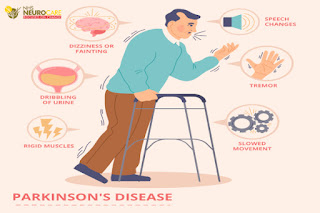Epilepsy: A brief of neurological disorder
Epilepsy is a neurological disorder that affects the nervous system. It is characterized by recurrent seizures. These seizures can be caused by many things, including genetic predisposition, head injuries, and brain tumors. Epilepsy is not a single disorder, but rather a group of disorders with different causes. However, all forms of epilepsy share one common symptom: recurring seizures.
What are the symptoms of epilepsy?
There are many different types of epilepsy and consequently, the symptoms vary from person to person. In general, however, the symptoms can be divided into two main categories:
-Seizures: These are the most well-known symptoms of epilepsy and can take many different forms. Some people with epilepsy will have seizures that cause them to fall to the ground and convulse, while others may simply stare off into space for a few seconds. There is a wide range in severity when it comes to seizures and they can be very frightening for both the person experiencing them and those witnessing them.
-Changes in behavior or cognition: Sometimes people with epilepsy will experience changes in their behavior or how they think and process information. This could manifest as anything from feeling agitated or confused to suddenly becoming very tired. In some cases, people with epilepsy may also have hallucinations or delusions.
What causes epilepsy?
There is no specific reason that could be named as the cause of epilepsy. But some common causes include:
Genetic illness
Brain trauma from a car accident or similar stressful incident.
Improper brain function
Infections
Birth Damage
Is epilepsy hereditary?
Epilepsy can run in families, but it is not always hereditary. In fact, only about 20% of people with epilepsy have a family history of the condition. There are many different types of seizures, and not all types are hereditary.
What triggers an epileptic seizure?
There are many different things that can trigger an epileptic seizure. Some people have seizures when they are exposed to flashing lights or other forms of visual stimulation. Others may have seizures when they hear certain types of sounds or when they are under a lot of stress. Seizures can also be brought on by sleep deprivation or by drinking alcohol. The cause can vary from person to person.
Conclusion
There is no cure to epilepsy but if properly managed the condition can be controlled. In order to diagnose, treat, and control epilepsy, doctors are essential. The specialists at NHS Neuro Care are ready to address your patient's questions about epilepsy and seizures and to provide them with support, encouragement, guidance, and treatment.
High-quality treatment for people with seizure disorders is a priority for NHS Neuro Care. Their specialists treat both children and adults, and we work closely with patients and families to give support at every stage of care. whether you have just had seizures or have struggled with them for a long time.



Comments
Post a Comment